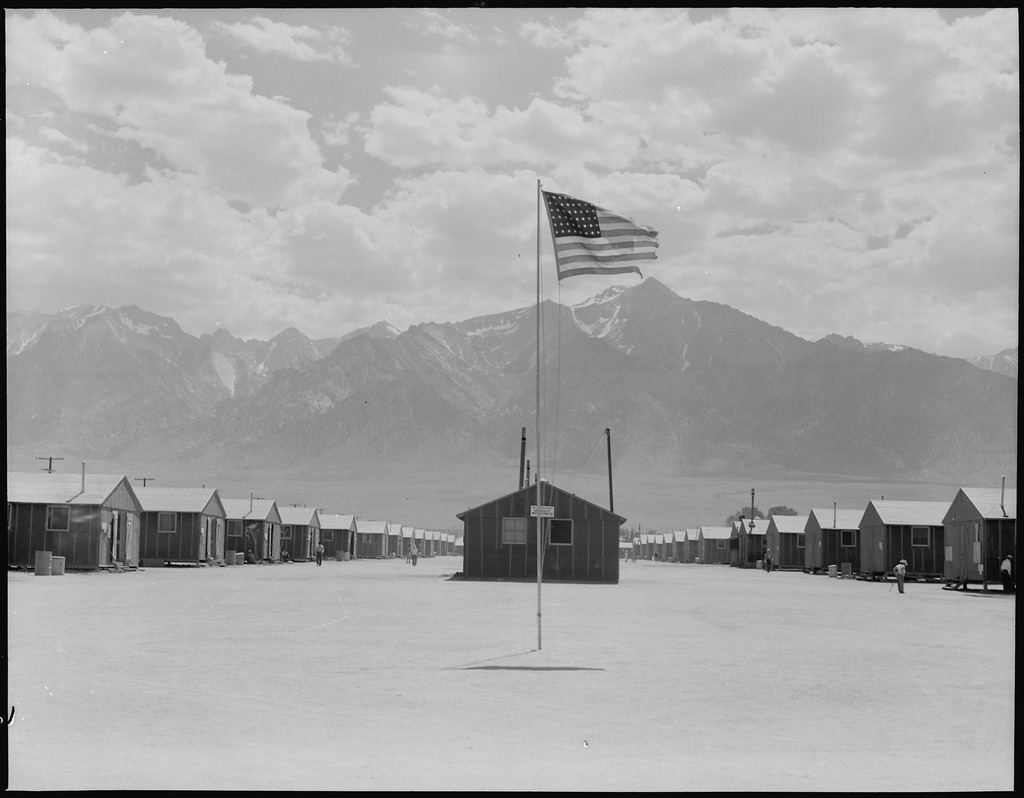November 8, 2024
In light of the election results, Densho is more determined than ever to continue our historical and educational work in pursuit of equal justice for all. As we come out on the other side of the election with a president who has threatened to round up and deport immigrants using the same law behind Japanese American WWII incarceration, the need for education, critical thinking, and an accurate understanding of our nation’s history is more urgent now than ever before.
This particularly contentious election cycle and its outcome have brought to the surface an unprecedented level of misinformation and political division. We must work together to continue learning from the lessons of our past and remain vigilant against the injustices unfolding before us now.
As we move forward, Densho remains committed to equipping educators, researchers, students, activists, and the general public with the historical knowledge and educational tools needed to defend our fragile democracy and to strive towards a more just future. We’ve therefore curated some resources to guide conversations and deepen understandings around the increased racism and xenophobia characterizing our current moment and the history that brought us here.
The Alien Enemies Act
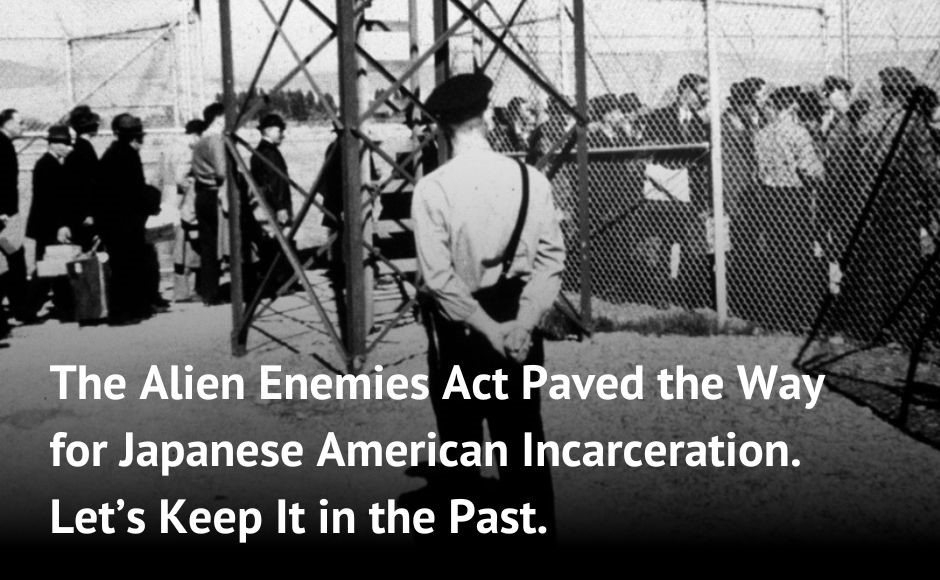
Trump has made a disturbing promise to round up millions of immigrants after taking office, invoking an 18th century law that grants the president sweeping power to detain and deport foreign nationals. That law, the Alien Enemies Act of 1798, was the same legislation that provided the legal basis for the internment and incarceration of Japanese Americans during World War II.
So what is the Alien Enemies Act, and is it as dangerous as it sounds?
>> Read more
Introduction to WWII Incarceration
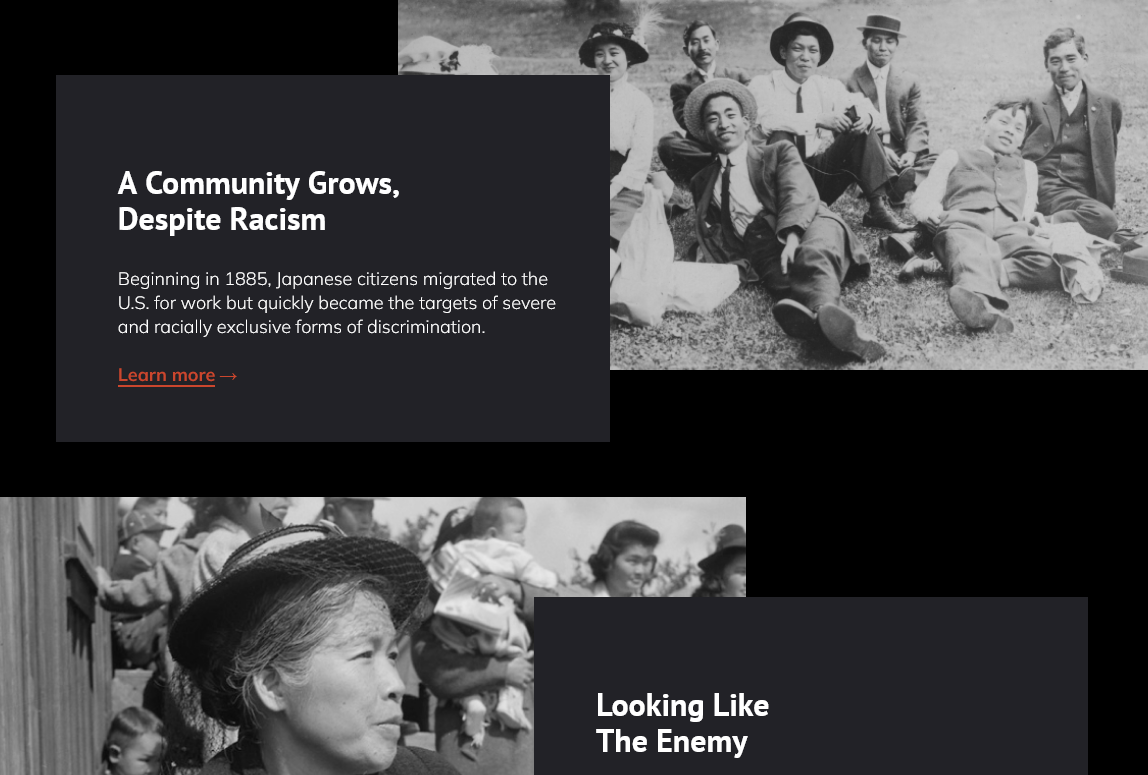
Learn the basics of Japanese American incarceration during World War II, the true reasons for this unprecedented denial of civil liberties, and why it still matters today with this series of short videos and essays.
“Other”: A Brief History of American Xenophobia
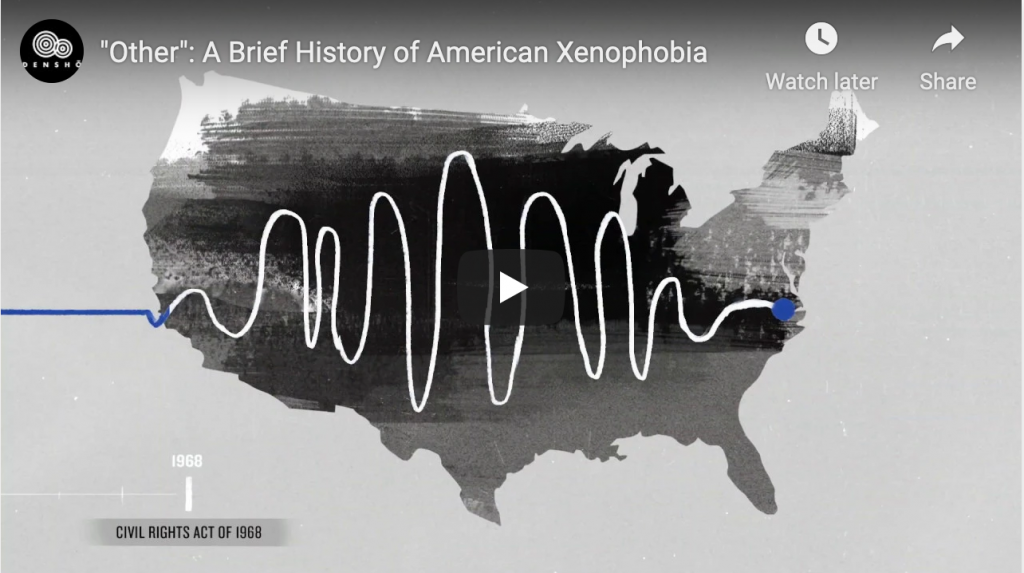
This short film and accompanying learning activities can help educators, students, and learners of all ages engage with the history of xenophobia and racism in our country, think critically about the connection between past events and current laws and policies, and motivate them to take action in the face of injustice.
>> Watch
Campu podcast
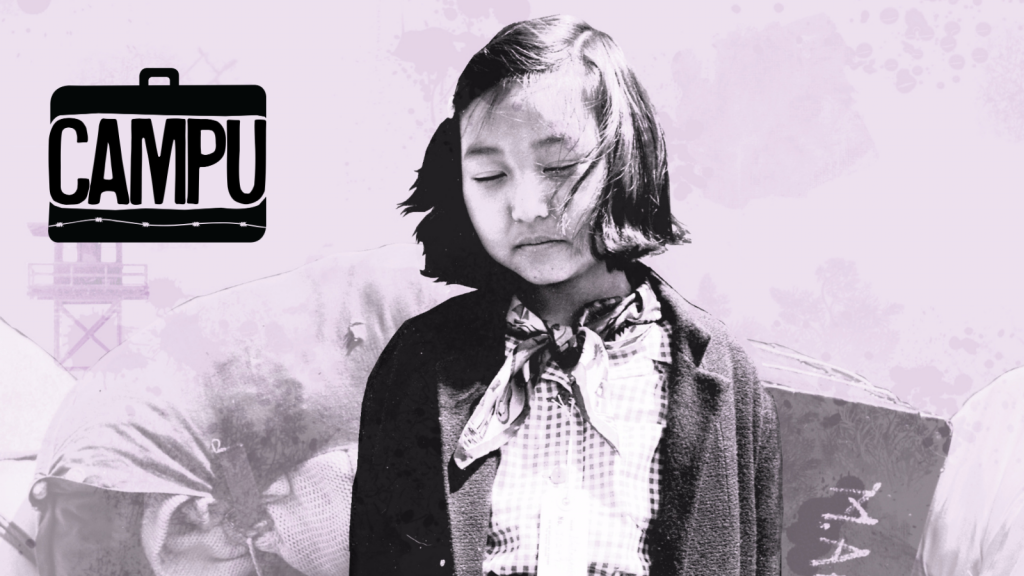
As we continue to see immigrants and other marginalized communities targeted for exclusion in ways that echo with Japanese American history, it’s worth taking a deeper look at some of the more intimate and lesser-known aspects of the wartime incarceration. In Densho’s podcast Campu, brother-sister duo Noah and Hana Maruyama weave together the voices of survivors to spin narratives out of the seemingly mundane things that gave shape to the incarceration experience: rocks, fences, food, paper.
>> Learn more and listen
>> Campu Education Hub
Understanding the “Model Minority” Myth
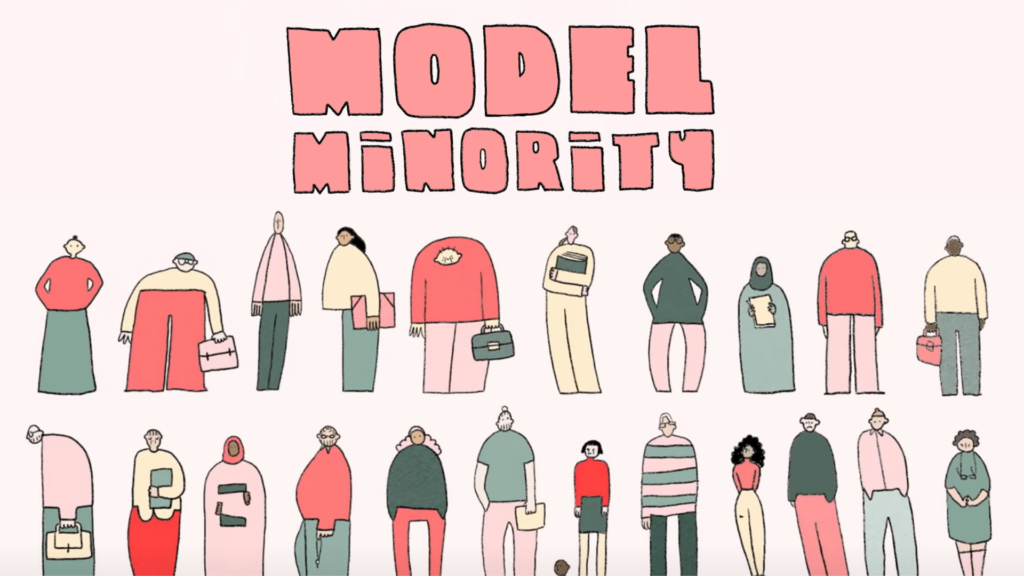
The racist and anti-immigrant rhetoric that has ramped up during this election cycle has been a painful reminder that the structures and beliefs that led to WWII incarceration are still very much part of our world. We collaborated with TED-Ed to create a lesson that traces the history behind the “model minority” myth and illustrates the damaging effects of racial stereotypes.
>> Watch the video
>> Explore additional resources and activities
What Is Critical Race Theory — and Why We Need It Now More Than Ever
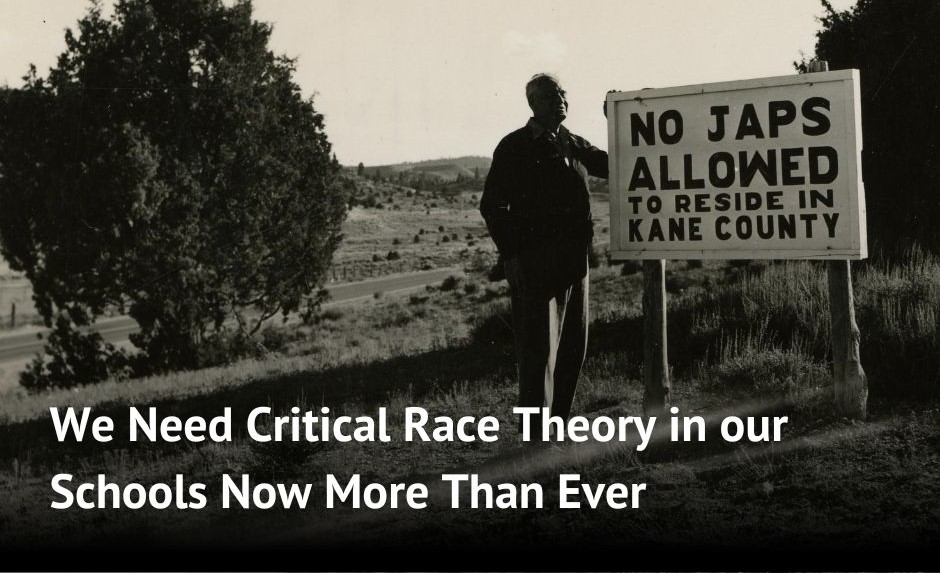
We need to be able to talk about the systemic nature of racism and xenophobia, in the hope that future generations will have the tools they need to overcome it. That’s why we need Critical Race Theory — the understanding that systemic racism exists at the very foundation of our country and continues to shape our lives today — in our schools and communities now more than ever.
Learn what Critical Race Theory actually means, how it’s connected to Japanese American history, and how you can support anti-racist education.
>> Read more
Take Action
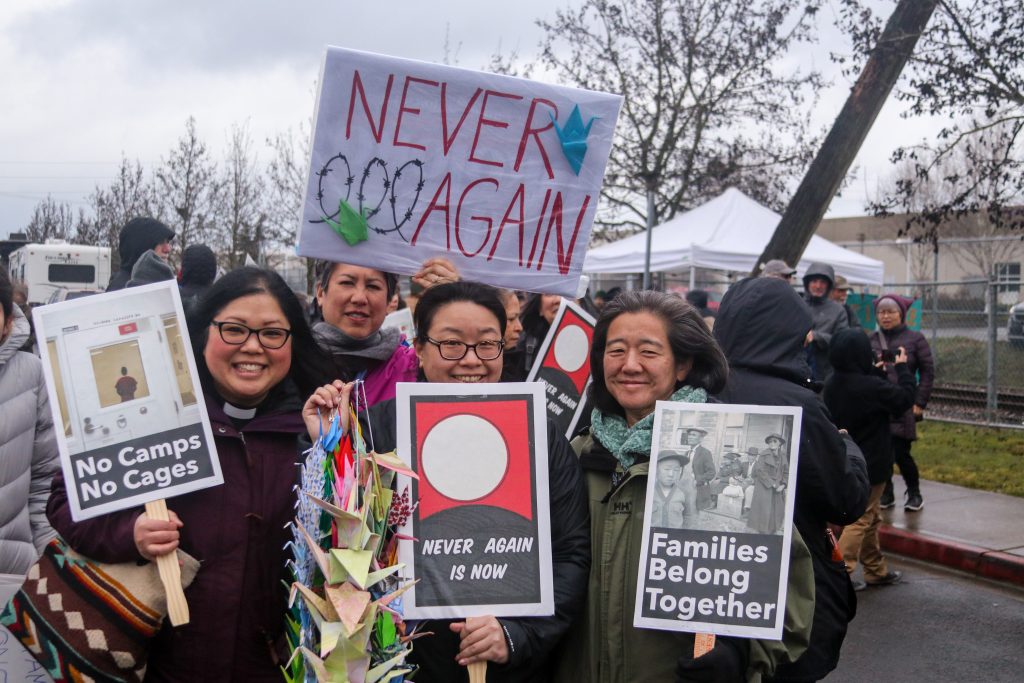
In addition deepening your own and others’ education around this history, consider taking action by supporting grassroots organizers fighting to stop the repetition of our history like Tsuru for Solidarity and La Resistencia, or joining the efforts of groups like the Minidoka Pilgrimage Planning Committee, Friends of Minidoka, and the Tule Lake Committee to defend sites of WWII incarceration as places of learning and healing for future generations.
